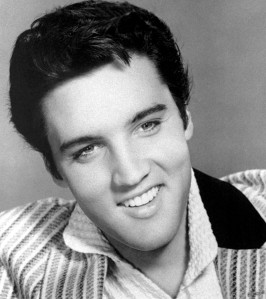Why Does it Feel So Good to Shop After a Breakup?
I like this question. Ask 10 people this question and look for the variety of answers you get. I can almost guarantee that unless you are talking to a neuroscientist, none of them will use the word dopamine in their answer. That’s too bad, because that is, in fact, the answer.
We might use all sorts of words to describe emotional pain and the soothing effect of distracting ourselves with simple pleasures and finding oneself etc, but in reality it might just boil down to the brain’s desperate search for dopamine to replace the dopamine that has been lost.
Dopamine, one of hundreds of chemical messengers in the brain known as neurotransmitters, has many roles in the brain, with one of them being the production of physical processes that we experience as pleasure, fun, or reward. In a nutshell, anything that we do that we enjoy and feel motivated to do again causes dopamine to be released in our brain, leading to good feelings and the increased likelihood of repeating the behavior.
Needless to say, our brain loves dopamine. However, it may love it just a bit too much. This means that when it gets a taste of dopamine, it is prone to want to go back for more as soon as possible. People who have so-called addictive personalities may in fact be more accurately described as having dopamine-starved brains.

I experience involuntary disinhibition of affect when my extracellular dopamine serum levels are increased. Thank you very much.
Because the brain knows that while dopamine is good thing, too much of a good thing can cause harm. Therefore, when the brain anticipates that an outside source of dopamine is about to be accessed, it will lower its own natural production of dopamine in preparation. This is why the addict needs to continually escalate the addictive behavior in order to approach the same pleasurable sensation that was experienced initially.
One great source of dopamine is the experience of being loved, wanted, needed, appreciated, etc. Dopamine is not the only neurotransmitter involved in these feelings, but it is the one most implicated in the pleasurable aspect of relationships. If a relationship has ended, the brain, which is used to anticipating an external source of dopamine in the company of your partner or at certain times of the day when you usually interact with that partner, is slow to catch on. Believing that a release of dopamine is imminent, it will lower its own natural production, leading to feelings of depression, lethargy, low motivation, etc. This is, in effect, a chemical withdrawal from the relationship.

Dopamine on tap!!!
One of the greatest sources of dopamine, unfortunately in many cases, is novelty. This means that when something is new to us, it will cause the release of more dopamine than something that we are used to. This is a very simplified explanation for why relationships that are not built on something meaningful tend to start strong and fade fast.
In the absence of a new relationship, the brain will take whatever source of dopamine it can get, provided that the dopamine is available quickly and at a high level. For many, substances such as alcohol, nicotine, or other stimulant drugs are a quick fix for the dopamine withdrawal. For others, it is the dopamine-rich act of overindulging in high-fat, high-carb foods. For others, it is the download of dopamine that comes from welcoming something new into your life, especially something expensive.

You’ll never leave me will you baby? You’ll always be good to me?
The dopamine that is released during the act of purchasing something that is expensive and new is a short-term fix for the long term depression of dopamine caused by the loss of the relationship. This is why we may realize, after setting up our new 80-inch TV with home theatre surround sound and watching sad music videos for hours, that we don’t actually feel much better. Once the novelty wears off, we are back to where we were in the first place.

The forest makes me sad.
The better solution is to realize that you are going to be going through a withdrawal for a while, don’t be frightened by the feelings, and look for sources of dopamine that are less intense but more lasting, such as strengthening real friendships. Eventually, the brain will catch on that the old source of dopamine is gone and restore its level back to whatever is normal for you.
While I’m on the subject, dopamine is heavily implicated in many mental health issues, most especially ADHD. Please stay tuned for an upcoming post on that subject.
Once again, I welcome your comments and further questions.
Leave A Comment
You must be logged in to post a comment.
How Can We Positively Direct Anger?
I want people to be able to get accurate and responsible answers to the questions that they have about mental health, mental illness, and psychology in general. I do not plan on answering questions based solely on opinion but on what science and experience has demonstrated. This does not mean that opinion does not play a role and that is where you come in.
Please send me your questions and I will attempt to answer them, possibly featuring them on this page. In addition, I not only welcome feedback and discussion, I’m practically begging for it. Let your voice be heard. Having said that, please be respectful of the voices of others. Abusive, offensive, or aggressive posts will not be allowed.
Question of the Day:

Q: How can people direct anger constructively?
I love this question. As someone who specializes in the treatment of anger and aggression, one of the philosophical ideas that is ubiquitous and, I believe, harmful, is the notion of “positive” anger. I think I know what people area referring to when they use this term but I think a deeper exploration of the idea of anger will reveal why I don’t believe this concept is possible.
When people referring to positive anger, for the most part, they are referring to the ability to channel one’s dissatisfaction with a situation into positive change using proper channels. Or in the case of physical aggression, it might be the ability to use aggressive behavior to escape a dangerous situation or protect oneself. A common use of this concept is within the sporting arena, where teams or rivals artificially raise their level of aggression in anticipation of a contest, believing that that aggression will fuel them on to victory and give them the motivation to persevere in the face of adversity.

Ping Pong? It’s called TABLE TENNIS!!!
These seem like very obvious examples of positive anger but in fact, they are not.
I think that the real root of what we call anger is hate. As far as I have experienced, I’m not sure that hate is possible to channel in a positive way. One of the key things to recognize is that the physical sensation of anger is virtually identical to the physical sensation of excitement, anticipation, and fear. The different labels that we apply to this physical sensation are rooted in a lifetime of experiences. Instead of trying to channel our “anger” in a positive way, we are probably better off to understand that sensation for what it actually is.
For example, in the case of a parent trying to encourage a child to do a chore or go to bed or please, for the love of all that is good and decent, can you please just eat the peas!!… that parent is better served to realize that the sensation that they are experiencing is in fact, not anger but something else. If we look at it logically, do we hate the child for their reluctance to follow direction? Hopefully not. So if it is not hate, what is it? What is it about the situation that is leading to this physical sensation? In almost every case, the catalyst to the reaction is the sensation of powerlessness.

A spoonful of sugar helps pretty much anything go down. These are my mom’s actual words.
So why does powerlessness set off the chain reaction that we experience as anger? The root is in our personal developmental history as well as the developmental history of our species. The central processing unit inside our skulls, also known as our brain, has a simple objective: survival. To that end, the predictability of one’s environment is inextricably linked to our ability to protect ourselves. To the degree that our environment is unpredictable, we are vulnerable to danger and harm. Thus, we are wired, and have been for a long time, to seek predictability through controlling our environment.
If we are raised in a secure, loving attachment relationship, our higher brain processes are able to develop beyond this level of survival-centred existence. The brain gets to know that we are safe, even if our environment is not completely predictable. However, if our brain does not learn that lesson, if powerlessness is paired with dangerous or harmful circumstances throughout our development, then the survival brain is much more reluctant to relinquish the steering wheel to the higher brain. This means that whenever we experience feelings of powerlessness, our brain believes that our very survival is on the line. In response to this perceived threat, the brain initiates the fight or flight response, which we experience as anger or frustration.
This is a very brief review of the subject and perhaps it doesn’t address the actual question of how to channel this feeling into something positive but I believe, and experience has demonstrated that if we are able to more accurately determine what it is that we’re feeling, we are more able to intuitively know what to do with that emotion.
Once again, I welcome your comments and questions. Please share this with whomever you think would benefit.
Past Q&A
Leave A Comment
You must be logged in to post a comment.
Is Mental Illness a Disease?
This is the first in a new feature on this site. I want people to be able to get accurate and responsible answers to the questions that they have about mental health, mental illness, and psychology in general. I do not plan on answering questions based solely on opinion but on what science and experience has demonstrated. This does not mean that opinion does not play a role and that is where you come in.
Please send me your questions and I will attempt to answer them, possibly featuring them on this page. In addition, I not only welcome feedback and discussion, I’m practically begging for it. Let your voice be heard. Having said that, please be respectful of the voices of others. Abusive, offensive, or aggressive posts will not be allowed.
Question of the Day:
Q: I have generally understood the meaning of “disease” to be the invasion of our bodies by some form of invasive bacteria or virus. If this is correct, how does mental health fit in this paradigm when it is also referred to as a disease, or when alcoholism is regarded as a “disease”?
A: This is a very common question in the realm of psychology, which is often referred to as a soft science. That somewhat condescending description refers to the reality that psychological phenomena are not always as concretely observable as those in the more traditional science such as biology and chemistry. Of course, this assumes that what we are able to see through our microscopes are the end of the line in observable entities and that what appears to be a direct cause to an effect is actually so. Psychological phenomena are merely in the early stages of exploration and observation, especially within the realm of neurophysiology. Give it a few years and see how soft the science of psychology is.
This separation between the hard and soft sciences is partly to blame for the confusion and disagreement that exists around the disease notion of mental illness and mental health. In actual fact, according to dictionary.com, the definition of disease is :
“a disordered or incorrectly functioning organ, part, structure,or system of the body resulting from the effect of genetic or developmental errors, infection, poisons, nutritional deficiency or imbalance, toxicity, or unfavorable environmental factors; illness; sickness; ailment.”
Of particular note in this definition of disease is the inclusion of “unfavorable environmental factors” as a possible pathogen, or disease creating agent. In our society we have been semantically conditioned to consider pathogens to be organisms, made from chemicals both naturally occurring and synthesized. The word disease invokes images of affected tissues or infection but in actual fact, the pathogen may be as difficult to objectify as happiness or sadness.
In other words, an unhealthy social environment may lead to maladaptive development of the organ that is responsible for navigating our social environment: the brain. This is just as true as tobacco smoke affecting the organ whose job it is to process oxygen for the body: the lungs.
In a nutshell, we separate the body into two unequal halves, neck-up and neck-down, and though we would readily admit to the potential harm that a sharp blade would have on our vulnerable skin, we are reluctant to acknowledge the potential harm of a sharp word on our vulnerable cerebral cortex, especially during the developing years.
This may seem like a long answer to a question that could have been much more easily answered with a plea to the dictionary and a hollow, “It depends what you mean by disease” retort, but I think in order to refocus this long-standing debate, we need to shift the paradigm of what we mean by health and disease.
There is much science to demonstrate the impact of experience on not only the function of the brain, but its actual structure. For example, watch this video by neurodevelopment expert Dr. Allan Schore.
In conclusion, if we can get past the societal notion of what a disease is, then yes, I believe that we can lump mental illness in with every other form of physical corruption that may occur during this life, regardless of the organ or the origin.I hope this addresses the question adequately and I welcome feedback and opinions on the topic.
Leave A Comment
You must be logged in to post a comment.
